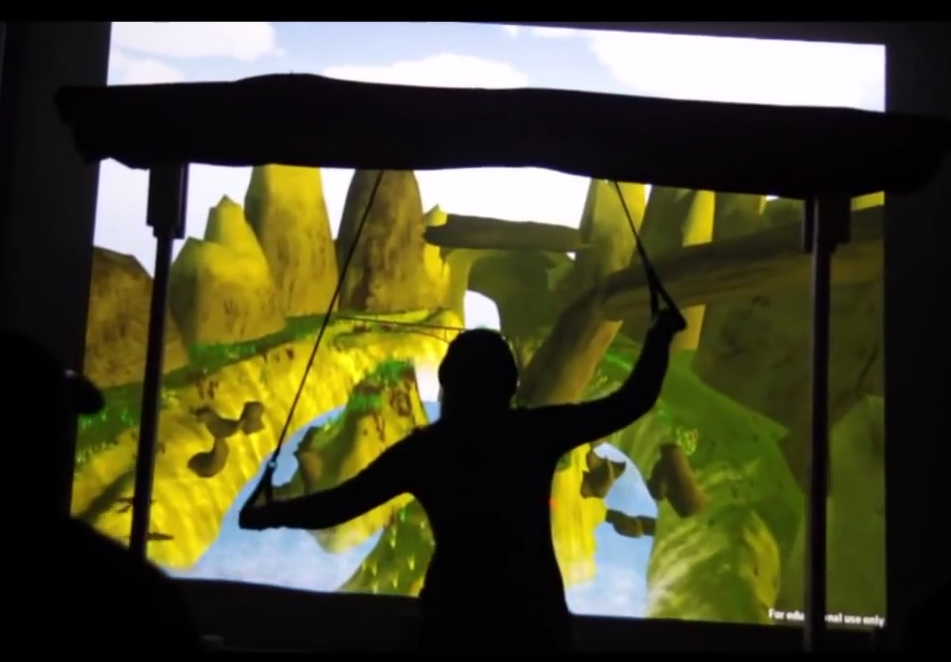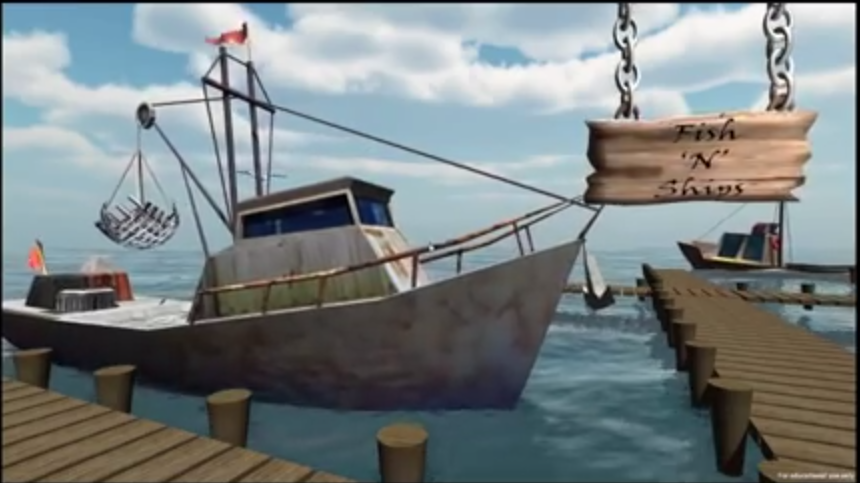Zen Canyon Paragliding was a 2 week long project collaboration during the course Building Virtual Worlds. Alex played the role of texture artist, producer, and interaction designer. The game hinges around the player’s use of the paragliding apparatus as an immersion-building component and control tool. While the game uses the Kinect for Windows, the player pulls down on the paragliding steering cords in order to turn. The use of the apparatus serves to build off the player’s natural control language, so that even though players might not have gone paragliding before, a very simple set of instructions serve to clarify how to navigate the world.
The game world is also designed to aid non-native gamers. Our task for this assignment was to build a game that naive users could play the first time and win- many of whom have no experience with virtual worlds whatsoever. In Zen Canyon, the constant wind pulls players in the right direction through a series of branching and then converging path options.
For this piece, our team was awarded semi-finalist position in the Adobe Design Achievement Awards in the installation category.


